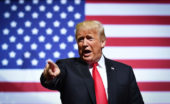Re The UN General Assembly Speaker Schedule is Here! I note that whoever will be speaking for Canada this year…
U.S. 2012 elections varia
Written by Diana Thebaud Nicholson // November 12, 2012 // Politics, U.S. // Comments Off on U.S. 2012 elections varia
In Defense of the Electoral College
Five reasons to keep our despised method of choosing the president.
1) Certainty of Outcome
A dispute over the outcome of an Electoral College vote is possible—it happened in 2000—but it’s less likely than a dispute over the popular vote.
2) Everyone’s President
The Electoral College requires a presidential candidate to have transregional appeal. No region (South, Northeast, etc.) has enough electoral votes to elect a president.
3) Swing States
They are likely to be the most thoughtful voters, on average (and for the further reason that they will have received the most information and attention from the candidates), and the most thoughtful voters should be the ones to decide the election.
4) Big States
The Electoral College restores some of the weight in the political balance that large states (by population) lose by virtue of the mal-apportionment of the Senate decreed in the Constitution.
5) Avoid Run-Off Elections
The Electoral College avoids the problem of elections in which no candidate receives a majority of the votes cast. For example, Nixon in 1968 and Clinton in 1992 both had only a 43 percent plurality of the popular votes, while winning a majority in the Electoral College (301 and 370 electoral votes, respectively).
How a Bill Becomes a Law
(U.S. Constitution online) The general process for making a bill into a law is described in the Constitution. As with many things, however, the Constitution leaves most of the details to the people of the day, dictating just the overall picture. Before we delve into those details, however, a look at the general process is useful.
First, a bill must pass both houses of Congress by a majority vote. After it has passed out of Congress, it is sent along to the President. If the President signs the bill, it becomes law.
The President might not sign the bill, however. If he specifically rejects the bill, called a veto, the bill returns to Congress. There it is voted on again, and if both houses of Congress pass the bill again, but this time by a two-thirds majority, then the bill becomes law without the President’s signature. This is called “overriding a veto,” and is difficult to do because of the two-thirds majority requirement.
Alternately, the President can sit on the bill, taking no action on it at all. If the President takes no action at all, and ten days passes (not including Sundays), the bill becomes law without the President’s signature. However, if the Congress has adjourned before the ten days passes and without a Presidential signature, the bill fails. This is known as a pocket veto.
What is the Electoral College?
The Campaign in Two Minutes – clever montage from CNN
David Frum: America’s voting system is a disgrace
(CNN) — When the polls close in most other democracies, the results are known almost instantly. Ballots are usually counted accurately and rapidly, and nobody disputes the result. Complaints of voter fraud are rare; complaints of voter suppression are rarer still.
…
Americans worry more about voter fraud than do voters in other countries, because they are the only country without a reliable system of national identification.
In no other country, including federal systems such as Germany, Canada and Australia, does the citizen’s opportunity to vote depend on the affluence and competence of his or her local government.
In every other democracy, the vote is the means by which the people choose between the competing political parties — not one more weapon by which the parties compete.
The United States is an exceptional nation, but it is not always exceptional for good. The American voting system too is an exception: It is the most error-prone, the most susceptible to fraud, the most vulnerable to unfairness and one of the least technologically sophisticated on earth. After the 2000 fiasco, Americans resolved to do better. Isn’t it past time to make good on that resolution?
Mail-in ballots: the hanging chads of 2012?
(Reuters via The Nation, Pakistan) Sloppy signatures on mail-in ballots might prove to be the hanging chads of the 2012 election.As Republicans and Democrats raise alarms about potential voter fraud and voter suppression, mail-in ballots have boomed as an uncontroversial form of convenient, inexpensive voting.
In the critical swing states of Ohio and Florida, more than a fifth of voters chose the mail-in option 2010.
In Colorado, another battleground, the number was nearly two-thirds. But there may be controversy to come. For a variety of reasons, mail-in ballots are much more likely to be rejected than conventional, in-person votes.
With the razor-close presidential election Tuesday between President Barack Obama and Republican challenger Mitt Romney potentially riding on a few tens of thousands of votes in a handful of states, the election could be decided by election officials’ judgments about mail-in ballot signatures.
The United States of Irrelevance
(Politico) The award for the best campaign story of the day goes to a reporter who isn’t even on the election beat.
Adam Liptak, who covers the Supreme Court for the New York Times, has a must-read about America’s shrinking electoral battleground, and the toxic effects of a system where the vast majority of states are ignored during presidential campaigns.
CNN Explains Electoral College
Five myths about the electoral college
(WaPost) Could Mitt Romney win the popular vote on Tuesday while President Obama captures a majority of the 538 electoral votes and a return trip to the White House? Recent polling results have raised just that possibility, reminding Americans once again that they cast ballots, but they don’t elect presidents directly. That job falls to the electoral college, a system that requires candidates to win states, not just votes. Let’s take a look at the main justifications for maintaining the electoral college and see how they stand up to scrutiny.
1. The framers created the electoral college to protect small states.
2. The electoral college ensures that the winner has broad support.
3. The electoral college preserves stability in our political system by discouraging third parties.
4. In direct elections, candidates would campaign only in large cities.
5. Electors must vote for the candidate who wins their state.
A Romney-Biden Administration? It Could Happen
By Jonathan Karl | ABC OTUS News
It sounds crazy. It would be crazy. But it is possible that this election could result in a President Romney and a Vice President Biden.
Let me explain.
If there is a tie in the electoral college (and, as I explain below, there could be), it will be up to the newly elected House of Representatives to elect a President and the newly elected Senate to elect the Vice President.
Tune in to ABC News.com tonight at 8 p.m. ET for anchored coverage of the final presidential debate, held at Lynn University in Boca Raton, Fla.
The rules are all outlined in the 12th Amendment to Constitution. Here’s how it would work:
1) In the House vote for President, each state delegation gets a single vote. So California, with 53 Representatives (majority of them Democrats), would likely cast its single vote for Obama. South Dakota with just one Representative (Republican), would get equal weight and likely cast its vote for Romney, and so on.
All told, in the current House, Republicans have majority control of 33 state delegations; Democrats control 14 and 3 are evenly divided. Even if the Democrats win control of the House, the Republicans would almost certainly still control a majority of the state delegations. Bottom line: Romney wins.
2) In the Senate vote for Vice President, each Senator gets a single vote. If Democrats keep control of the Senate, Biden would likely win (unless somebody crosses party lines).
If the new Senate is divided 50-50 (a plausible outcome), the sitting Vice President would cast the tie-breaking vote. That sitting vice President: Joe Biden. Yes, Joe Biden would be the deciding vote in re-electing Vice President Joe Biden. Bottom line: If Democrats keep control of the Senate, Biden likely wins.
Voila! You have a Romney-Biden Administration, the greatest political odd couple since the Adams-Jefferson Administration (now those two had real political differences).
Read the U.S. Constitution and Bill of Rights
Is this all just crazy talk? No.
There are a number of plausible scenarios which could result in a 269-269 electoral tie.
Here’s just one: Obama wins OH, WI, NH. Romney wins FL, VA, NC, IA, CO, NV (and all other states go as expected).
Result: a 269-269 tie.
I am not saying this is likely to happen. But it is far from impossible.
Don’t believe me? Play the electoral game yourself at ABC’s Gamechanger’s electoral college map..
John Parisella: The looming importance of the electoral college
With the presidential debate season drawing to an end, campaign emphasis will soon shift to getting out the vote.
It is estimated that by Nov. 6, between 30 per cent and 40 per cent of eligible voters will have done so since early voting began at the beginning of October. The influence of the first debate, which challenger Mitt Romney clearly won, has turned what seemed like a sure bet for Obama’s re-election into a tightly fought race that will come down to a small number of key states.
Popular vote polls are generally within the margin of error. It is likely the final result on Nov. 6 could be close to an even split. However, a president is chosen by the Electoral College and here we are reminded of the most dramatic outcome in U.S. history: the Gore-Bush election of 2000. As we all recall, Democrat Al Gore won the popular vote, but George W. Bush became president when the Supreme Court of the United States decided to end the recount saga in Florida, thereby awarding the 27 electoral votes of that state to the Republican challenger.
A similar scenario could emerge in which the popular vote total may not translate into the Electoral College outcome. The general consensus is that Barack Obama clearly won the second debate, and has kept his lead in a key battleground state – Ohio – as well as maintaining his edge in other swing states to pull off an Electoral College majority (270 votes ).
It seems the outcome in three states that could decide the next President are Ohio, Florida, Virginia. Latest polls give Ohio to Obama and Florida to Romney. Virginia is a toss up. Obama will likely win such small swing states as Iowa, Nevada and Wisconsin, which could make Ohio the deciding state for the presidency.



